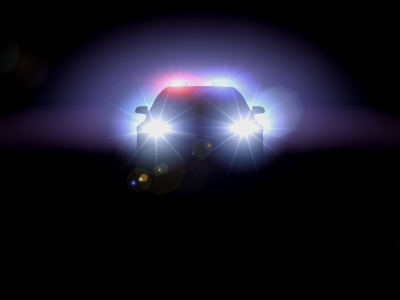Illinois law on driving under the influence changed significantly in 2008. In that year, the legislature added additional penalties for the offense of DUI. For example, an arrest for DUI where the driver does not have a valid license turned into a felony offense.
For years defendants who were arrested for DUI without a valid license were prosecuted for misdemeanors. Instances of defendants getting stopped for DUI without a valid license were widespread.
The Illinois DUI statute provides that the person is guilty of aggravated DUI where:
[T]he person committed the violation while he or she did not possess a driver’s license or permit or a restricted driving permit or a judicial driving permit or a monitoring device driving permit.
See 625 ILCS 5/11-501(d)(1)(H).
The offense of driving without a valid license, by itself, is typically not a criminal offense. The statute that penalizes driving on an expired or invalid license is 625 ILCS 5/6-101. The law says it is against the law to drive without a valid license:
No person, except those expressly exempted by Section 6‑102, shall drive any motor vehicle upon a highway in this State unless such person has a valid license or permit, or a restricted driving permit, issued under the provisions of this Act.
See 625 ILCS 5/6-101(a).
A person who is ticketed for driving without a valid license is guilty of petty offense. A petty offense is not criminal, and therefore, the court cannot sentence the defendant to jail. The maximum fine for a petty offense is $500. See 625 ILCS 5/6-601(b).
However, in situations where the license was expired for more than one year, or where the driver never had a driver’s license, then a violation of 625 ILCS 5/6-101 is a criminal offense. Specifically, driving without a valid license under these circumstances would be a Class B misdemeanor. 625 ILCS 5/6-601(c)(2) provides the following:
[The penalty is a] Class B misdemeanor if the person has been issued a driver’s license or permit, which has expired, and if the period of expiration is greater than one year; or if the person has never been issued a driver’s license or permit, or is not qualified to obtain a driver’s license or permit because of his age.
See id.
Illinois imposes a penalty of up to 6 months in jail and a $1,500 fine for Class B misdemeanors. See 730 ILCS 5/5‑4.5‑60.
Most instances of driving without a valid license are petty offenses subject to fine only. But where a person gets a DUI charge without a valid license, the DUI is a Class 4 felony offense. This causes very serious problems for the defendant in and out of court.
First, the defendant could lose his driver’s license on a first DUI offense where most other first offenders would not.
DUI in Illinois is generally a Class A misdemeanor. A misdemeanor is eligible for supervision. This sentence is not a conviction. If the defendant pleads guilty and receives supervision, the court “supervises” the defendant for a period of typically one year. At the termination date of this period, if the defendant has not violated the law, then the court dismisses the charge. Prior to the dismissal, the court defers judgment on the case, and so, the defendant is not convicted of the offense. See 730 ILCS 5/5-6-1.
Supervision is crucial for a first DUI offense because it does not cause the Secretary of State to revoke that person’s driving privileges pursuant to 625 ILCS 5/6-205. Only on a second DUI, where the defendant is not eligible for supervision, would he receive a conviction and a revoked license. See 730 ILCS 5/5-6-1(d).
Driving under the influence without a valid license is a Class 4 felony. Supervision is not available for felony offenses. Therefore, any finding of guilt on a felony offense of DUI results in a conviction, and this conviction causes the Secretary of State to revoke that person’s driving privileges.
And so, even a first DUI offense where the driver has an expired license can result in a full revocation of driving privileges. That person would be eligible to drive only after undergoing a formal hearing with the Secretary of State. Approximately 80 percent of applicants for reinstatement are denied at their first formal hearing.
The second set of problems comes from the sentencing for a Class 4 felony. The penalty for a Class 4 felony is 1-3 years in the Department of Corrections (DOC) and possible $25,000 fine. The court may sentence the defendant to probation. However, if the defendant receives probation and commits a violation, then re-sentencing will take place. During re-sentencing for a violation, the court can re-sentence the defendant to 1-3 years DOC.
As one can see, the penalties for DUI without a driver’s license are very severe.


